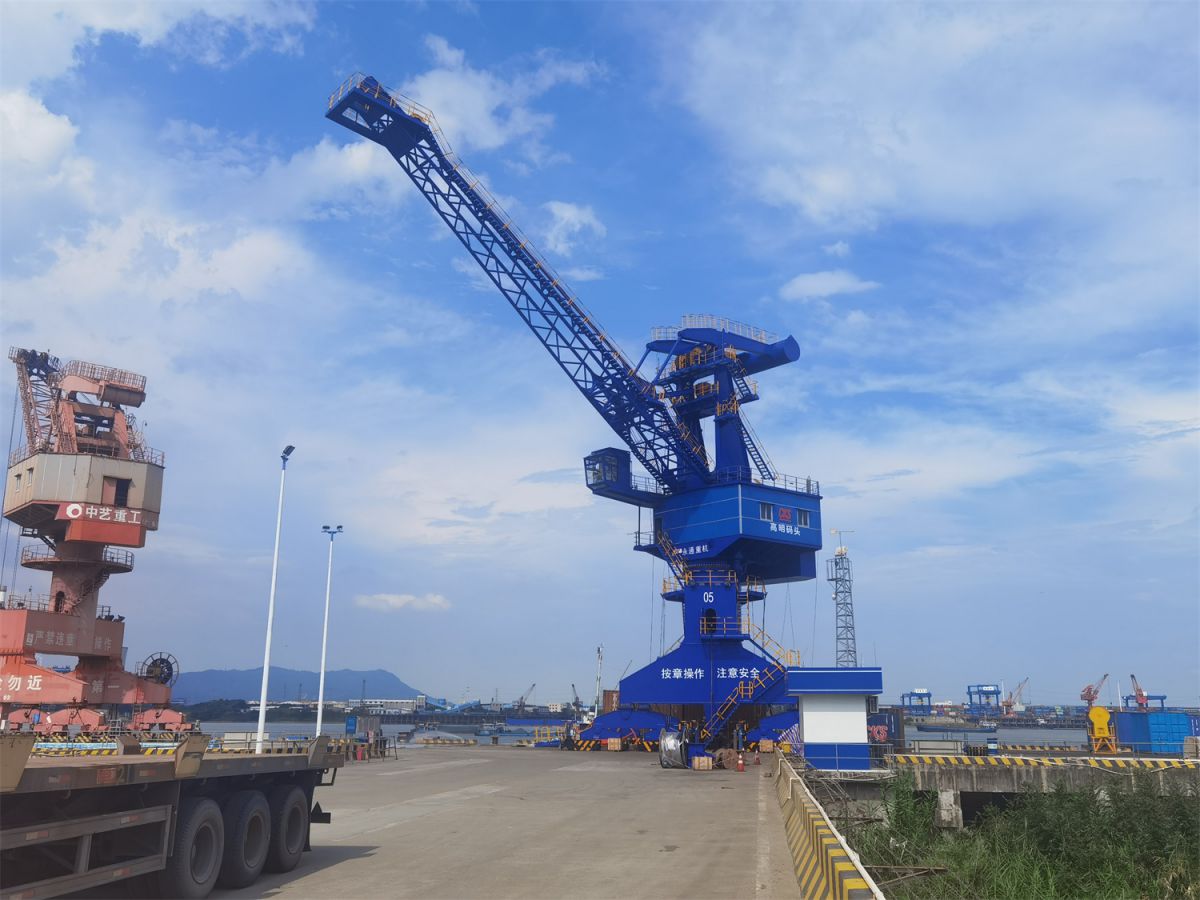

2023-03-07
Gantry crane and stationary crane are two different crane types. A gantry crane has four legs that form four "doorways" that allow vehicles to pass through. They generally run along tracks on the ground or in buildings and are used for loading and unloading cargo. Stationary cranes do not have rails, but are fixed in one position and used to lift items within a specific range.

The difference between gantry crane and fixed crane is mainly as follows:
Different functions: gantry cranes can swing the arm through the gantry frame of rail vehicles or other ground vehicles, which are used for loading and unloading and installation operations in ports, docks, shipyards and other places. Fixed crane has no track, can only be lifted in one position, for buildings, factories, warehouses and other places in the vertical or horizontal direction of material handling.
Different construction: gantry cranes have four legs that form four "doorways" that allow vehicles to pass through. They are available in three forms: full portal, half portal and cantilever. A stationary crane has no legs, but consists of a tower body, a rotary support, a balancing arm and a lifting arm. They come in three forms: tower crane, bridge crane and gantry crane.
Different performance: the lifting weight of gantry crane is generally between 10~1000 tons, span between 18~35 meters, working class A6 or A7. Medium or higher work level, suitable for frequent or continuous work situations. The lifting weight of the fixed crane is generally between 0.5~500 tons, the span is between 3~60 meters, the work level is A3 or A4, that is, mild or medium work level, suitable for occasional or intermittent work occasions.
Copyright @ Guangdong Yongtong Crane Machinery Co., Ltd. 粵ICP備2022051937號